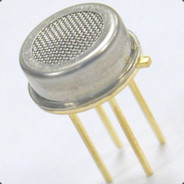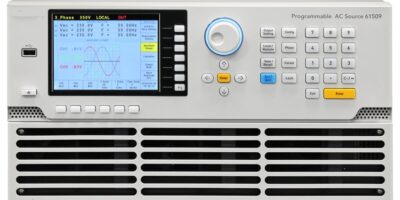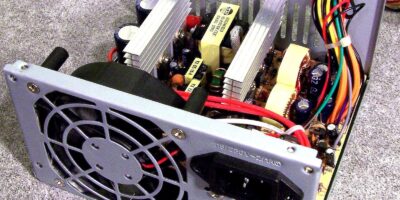The global metal oxide gas sensors market is projected to reach from USD 164 million in 2022 to USD 390.25 million in 2033, with a compound annual growth rate (CAGR) of 8.2% from 2023 to 2033.
Metal Oxide Gas Sensors Market Overview
Metal oxide gas sensors are a type of chemical sensor used to detect gases by utilizing the change in electrical resistance of metal oxides when they interact with gas molecules. These sensors are widely used in various industries, including automotive, industrial, environmental monitoring, and consumer electronics, due to their high sensitivity, stability, and low cost. The market for metal oxide gas sensors is expanding, driven by the increasing need for air quality monitoring, stringent environmental regulations, and the growing adoption of smart home devices.
Market Drivers
- Environmental Regulations: Stringent government regulations aimed at reducing air pollution and monitoring environmental emissions are driving the demand for metal oxide gas sensors. Industries are required to monitor and report emissions of harmful gases, thereby boosting the market.
- Air Quality Monitoring: Increasing awareness about the health impacts of poor air quality is leading to higher demand for air quality monitoring devices. Metal oxide gas sensors are essential components in these devices, which are used in both indoor and outdoor environments.
- Growth in the Automotive Industry: The automotive industry is a significant consumer of metal oxide gas sensors, which are used in emission control systems and cabin air quality monitoring. The push towards cleaner vehicles and the rise of electric and hybrid vehicles are further driving demand.
- Industrial Safety and Process Control: In industrial settings, metal oxide gas sensors are used for leak detection, process control, and safety monitoring. The need to ensure worker safety and maintain efficient operations is a key driver for the adoption of these sensors.
- Advancements in Sensor Technology: Continuous improvements in sensor technology, such as enhanced sensitivity, miniaturization, and integration with IoT platforms, are expanding the applications and effectiveness of metal oxide gas sensors.
Key Market Trends
- Integration with IoT and Smart Devices: The integration of metal oxide gas sensors with Internet of Things (IoT) platforms is becoming more prevalent. This trend allows for real-time monitoring and data analysis, improving the functionality of smart home devices, industrial systems, and environmental monitoring solutions.
- Development of Multi-Gas Sensors: The development of sensors capable of detecting multiple gases simultaneously is a significant trend. These multi-gas sensors provide comprehensive monitoring solutions, reducing the need for multiple single-gas sensors and simplifying deployment and maintenance.
- Enhanced Sensitivity and Selectivity: Advances in materials science and sensor design are leading to the development of metal oxide gas sensors with enhanced sensitivity and selectivity. This allows for more accurate detection of specific gases, even at low concentrations.
- Wearable and Portable Devices: There is a growing trend towards the development of wearable and portable gas detection devices. These devices are used in personal safety applications, healthcare monitoring, and outdoor air quality assessment, providing users with real-time information about their environment.
- Energy-Efficient Designs: With the increasing use of battery-powered and portable devices, there is a focus on developing energy-efficient metal oxide gas sensors. These sensors are designed to consume less power while maintaining high performance, making them suitable for a wide range of applications.
Demand Key Growth Opportunities
- Smart Cities and Infrastructure Development: The development of smart cities and infrastructure projects globally is creating significant growth opportunities for metal oxide gas sensors. These sensors are used in various applications, including smart lighting, environmental monitoring, and public safety.
- Expansion of Industrial IoT (IIoT): The expansion of Industrial IoT is driving the demand for advanced gas sensing solutions. Metal oxide gas sensors are integral to IIoT systems, providing real-time data for process optimization, predictive maintenance, and safety monitoring.
- Rising Health and Safety Concerns: Increasing concerns about health and safety in both industrial and residential environments are boosting the demand for gas detection solutions. Metal oxide gas sensors are crucial in ensuring air quality and detecting hazardous gases.
- Technological Innovations in Healthcare: Innovations in healthcare, including the development of advanced diagnostic and monitoring devices, are creating new opportunities for metal oxide gas sensors. These sensors are used in medical devices to monitor environmental conditions and patient health.
- Environmental Monitoring and Climate Change Initiatives: Global initiatives to monitor and mitigate climate change are driving the demand for accurate and reliable gas sensors. Metal oxide gas sensors play a vital role in monitoring greenhouse gases and other pollutants, supporting environmental protection efforts.
Development and Forecasts
- Technological Advancements: Ongoing advancements in nanotechnology, materials science, and sensor design are expected to enhance the performance and capabilities of metal oxide gas sensors. These advancements will lead to the development of more sensitive, selective, and energy-efficient sensors.
- Market Expansion: The metal oxide gas sensors market is expected to expand significantly over the next decade, with Asia-Pacific projected to witness the highest growth. This growth is driven by rapid industrialization, urbanization, and increasing environmental awareness in the region.
- Integration with AI and Machine Learning: The integration of metal oxide gas sensors with artificial intelligence (AI) and machine learning algorithms will enhance their functionality. These technologies will enable more sophisticated data analysis, improving the accuracy and reliability of gas detection and monitoring.
- Regulatory and Compliance Requirements: Increasing regulatory requirements for environmental protection and industrial safety will drive the adoption of advanced gas sensing solutions. Compliance with these regulations will necessitate the use of high-performance metal oxide gas sensors.
- Collaborations and Partnerships: Strategic collaborations and partnerships between sensor manufacturers, technology providers, and end-users will drive innovation and market growth. These collaborations will facilitate the development of tailored solutions to meet specific industry needs.
Receive the FREE Sample Report of Metal Oxide Gas Sensors Market Research Insights @ https://stringentdatalytics.com/sample-request/metal-oxide-gas-sensors-market/9393/
Market Segmentations:
Global Metal Oxide Gas Sensors Market: By Company
• Alphasense (AMETEK)
• Renesas
• Figaro
• Sensirion
• SGX Sensortech
• Shanghai Zhuorui
• Cubic Sensor and Instrument
Global Metal Oxide Gas Sensors Market: By Type
• Transition-metal Oxides
• Non-transition-metal Oxides
Global Metal Oxide Gas Sensors Market: By Application
• Environmental Monitoring
• Medical
• Smart Home
• Semiconductor
• Others
Regional Analysis of Global Metal Oxide Gas Sensors Market
All the regional segmentation has been studied based on recent and future trends, and the market is forecasted throughout the prediction period. The countries covered in the regional analysis of the Global Metal Oxide Gas Sensors market report are U.S., Canada, and Mexico in North America, Germany, France, U.K., Russia, Italy, Spain, Turkey, Netherlands, Switzerland, Belgium, and Rest of Europe in Europe, Singapore, Malaysia, Australia, Thailand, Indonesia, Philippines, China, Japan, India, South Korea, Rest of Asia-Pacific (APAC) in the Asia-Pacific (APAC), Saudi Arabia, U.A.E, South Africa, Egypt, Israel, Rest of Middle East and Africa (MEA) as a part of Middle East and Africa (MEA), and Argentina, Brazil, and Rest of South America as part of South America.
Click to Purchase Metal Oxide Gas Sensors Market Research Report @ https://stringentdatalytics.com/purchase/metal-oxide-gas-sensors-market/9393/
Challenges
- Technical Limitations: Despite advancements, metal oxide gas sensors may face technical limitations in terms of sensitivity, selectivity, and stability in certain environments. Continuous improvement is necessary to overcome these challenges.
- Power Consumption and Maintenance: Ensuring low power consumption and minimizing maintenance requirements are critical for the widespread adoption of metal oxide gas sensors, particularly in portable and battery-powered applications.
- Cost Constraints: The initial cost of deploying advanced gas sensing solutions can be high, potentially deterring some industries and consumers. Efforts to reduce manufacturing costs and improve affordability are essential for market growth.
- Competition from Alternative Technologies: The market faces competition from alternative gas sensing technologies, such as electrochemical sensors and infrared sensors. Metal oxide gas sensor manufacturers must continually innovate to maintain their competitive edge.
- Data Security and Privacy: As metal oxide gas sensors are increasingly integrated with IoT platforms, ensuring data security and privacy is a significant challenge. Robust cybersecurity measures are essential to protect sensitive information.
Competitive Landscape
The metal oxide gas sensors market is characterized by the presence of several key players who are investing in research and development to enhance their product offerings and maintain market leadership. Major companies in the market include:
- Figaro Engineering Inc.: A leading manufacturer known for its high-performance gas sensors used in various applications, including air quality monitoring and industrial safety.
- SGX Sensortech (Amphenol Advanced Sensors): Offers a wide range of gas sensors with a focus on environmental monitoring and industrial applications.
- AlphaSense: Provides advanced gas sensing solutions for industrial, environmental, and medical applications.
- Bosch Sensortec: Known for its innovative sensor technologies, Bosch Sensortec offers metal oxide gas sensors for automotive and consumer electronics applications.
- Sensirion AG: A leading manufacturer of environmental and flow sensors, Sensirion offers high-quality gas sensors for air quality monitoring and industrial applications.
Future Outlook
The future of the metal oxide gas sensors market looks promising, with robust growth expected across various applications and regions. Key factors influencing the market include:
- Increasing Demand for Environmental Monitoring: The growing focus on environmental protection and air quality monitoring will drive the demand for advanced gas sensors.
- Technological Innovations: Continuous advancements in sensor technology, materials science, and integration with AI will enhance the performance and adoption of metal oxide gas sensors.
- Expansion in Emerging Markets: Rapid industrialization and urbanization in emerging markets, particularly in Asia-Pacific, will create significant growth opportunities.
- Regulatory and Compliance Requirements: Stringent regulatory requirements for emissions monitoring and industrial safety will boost the adoption of high-performance gas sensors.
- Collaboration and Innovation: Strategic collaborations and innovation will drive the development of tailored solutions to meet specific industry needs and expand market reach.
Conclusion
The metal oxide gas sensors market is poised for substantial growth, driven by increasing demand for air quality monitoring, stringent environmental regulations, and advancements in sensor technology. With continuous innovation and strategic collaborations, the market holds significant growth opportunities in the coming years. The integration of metal oxide gas sensors with IoT platforms and AI, along with the development of energy-efficient and multi-gas sensors, will further enhance their adoption across various industries.
About Stringent Datalytics
Stringent Datalytics offers both custom and syndicated market research reports. Custom market research reports are tailored to a specific client’s needs and requirements. These reports provide unique insights into a particular industry or market segment and can help businesses make informed decisions about their strategies and operations.
Syndicated market research reports, on the other hand, are pre-existing reports that are available for purchase by multiple clients. These reports are often produced on a regular basis, such as annually or quarterly, and cover a broad range of industries and market segments. Syndicated reports provide clients with insights into industry trends, market sizes, and competitive landscapes. By offering both custom and syndicated reports, Stringent Datalytics can provide clients with a range of market research solutions that can be customized to their specific needs.
Reach US
Stringent Datalytics
+1 346 666 6655
Social Channels:




Leave a Reply